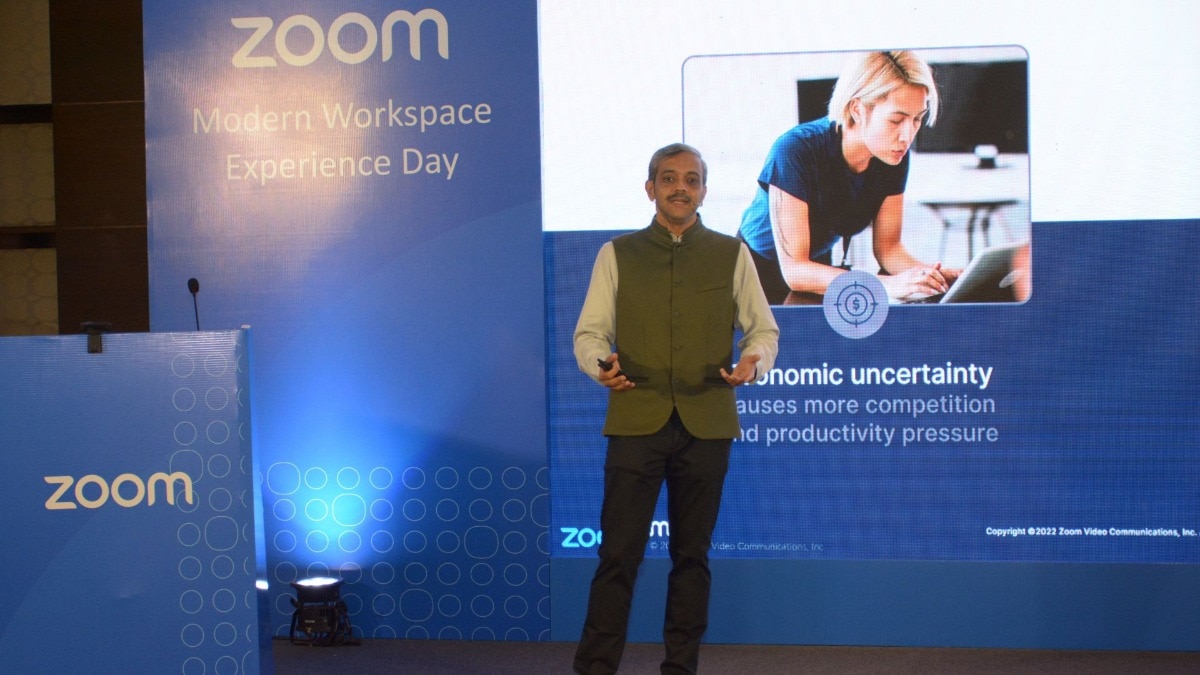Zoom, the ubiquitous video conferencing platform that became a household name during the pandemic, is undergoing a significant transformation. Far from being just a meeting app, the company is aggressively pivoting towards becoming an “AI-first work platform” offering a comprehensive suite of unified communication and collaboration tools. This strategic evolution, spearheaded by a unique federated AI model and a keen eye on the Indian market, aims to redefine how businesses connect and operate.
Sameer Raje, General Manager and Head of India & SAARC at Zoom, sat down in an exclusive conversation with Business Today and outlined Zoom’s ambitious vision, highlighting that AI is not a new addition but a foundational element of Zoom’s platform, tracing back to features like virtual backgrounds.
Zoom’s AI Approach
The core of their AI strategy, however, lies in a “federated model.” This innovative approach leverages a blend of Zoom’s own proprietary Large Language Models (LLMs) alongside industry-standard ones, with the added flexibility for customers to integrate their own LLMs. This intelligent orchestration of AI models, Raje explained, is designed to break down internal organisational silos, enhance existing systems, and provide cost-effective, high-quality AI functionalities.
A prime example of this advancement is the enhanced Zoom AI Companion. What once merely summarised meetings can now proactively create tasks, schedule meetings by aligning participant calendars, and even draft emails. This move signifies Zoom’s commitment to automating mundane tasks, allowing users to focus on higher-value activities. “The future is bright as the developments keep on happening,” Raje enthused, hinting at a continuous stream of new AI-driven features.
Data Privacy and the role of India
Crucially, Zoom is putting data privacy and security at the forefront of its AI development. Raje emphatically stated, “We do not use customer data for our training models,” a commitment clearly visible on their website. He also emphasised transparent privacy rules and the ability for administrators to customise AI usage, particularly for industry-specific needs like those in the pharmaceutical sector. This client-centric approach to data governance aims to build trust and facilitate the widespread adoption of AI-powered workflows, especially in sensitive enterprise environments.
India’s strategic importance to Zoom is multifold. Beyond being a burgeoning market with astonishing economic growth, Raje highlighted India’s vast talent pool. Zoom operates two tech centres in India – a global support hub in Bangalore and a research and development centre in Chennai focused on new technologies. While the company maintains a fluid, “startup-like” agility, enabling quick decisions and customer-driven innovation, future expansion of these centres will be guided by market growth and evolving customer demands.
Internally, Zoom employees, or “Zoomies”, are already embracing AI to enhance their daily work. Raje shared how AI streamlines approval processes for leaves and travel, integrating seamlessly with internal systems and allowing for quick approvals directly within the Zoom interface. Raje also pointed out the AI Companion’s ability to provide full transcriptions of in-person meetings as a practical example of how AI is making internal operations more efficient.
Impact of AI on the Job Market
Addressing the elephant in the room, Raje offered a nuanced perspective. He stressed that irrespective of AI, the modern workforce must continuously “unlearn and learn every single day” to remain relevant. AI, he argued, accelerates this necessity. “If you’re not going to unskill and skill and unlearn and learn, forget about AI. You’re anyways going to be redundant,” he cautioned. However, he maintained that AI serves to augment human capabilities, freeing up individuals for more creative and productive tasks that AI cannot replicate.
Zoom: More than just a meeting app?
Zoom is also actively challenging its post-pandemic image as solely a “meeting app.” Raje acknowledged that this is an “uphill and monumental task,” but the company is committed to educating users through ongoing awareness campaigns, webinars, and seminars about its expanded ecosystem of communication tools.
